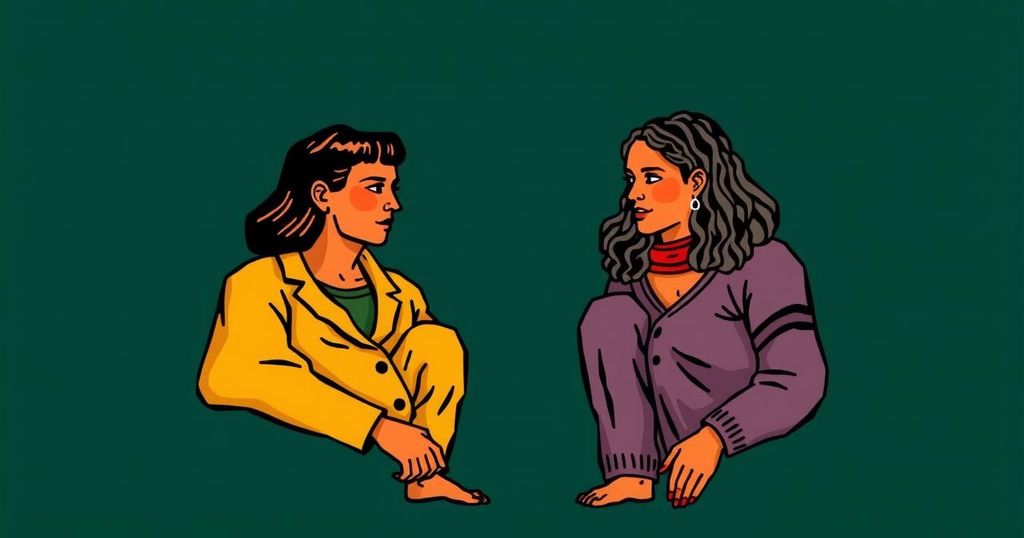Freedom of Expression Under Threat in the Americas: A November 2023 Overview

November 2023 revealed pressing challenges to freedom of expression and civic space in the Americas, marked by threatening legislation in the U.S., rising violence against journalists in Bolivia, and repression in Nicaragua. These developments signal a critical moment for civil society, while ongoing efforts against gender-based violence reflect the resilience of advocacy groups in addressing human rights violations.
November 2023 brought to light alarming challenges to freedom of expression and civic space across the Americas, primarily triggered by evolving political landscapes and contentious legislative advancements. In the United States, newly enacted laws threaten the operational integrity of civil society and nonprofit organizations, while Bolivia sees an unsettling escalation in violence directed at journalists amidst political turmoil. Concurrently, Nicaragua’s Universal Periodic Review emphasized the need for international attention towards rampant repression faced by independent media.
In the United States, the passage of House Bill H.R. 9495 poses significant risks to civil society, granting the Secretary of the Treasury the power to revoke tax exemptions for nonprofits deemed supportive of terrorism, raising concerns regarding due process. Advocacy groups, including Human Rights Watch, have expressed alarm over this legislation, deeming it a potential catalyst for fear-based suppression of independent discourse. Simultaneously, former President Donald Trump’s actions following the elections further compound these threats through legal actions against media that criticize him, invoking severe apprehensions from press freedom advocates.
The United States’ challenges also reverberate throughout Latin America, exacerbating issues related to independent journalism and democracy. Anticipated budget cuts to international aid projects that support independent media could undermine journalistic integrity and safety, particularly for exiled reporters seeking haven in the U.S. Furthermore, escalating authoritarian trends may diminish global collaborative efforts that seek to regulate internet governance and uphold data privacy.
In Bolivia, journalists face unprecedented violence, particularly as political demonstrations escalate against the government, with reports of physical assaults and harassment becoming alarmingly commonplace. Significant instances, such as attacks on journalist Jurgen Guzmán and photojournalist Jorge Ábrego, underscore the growing hostility toward the press, fueled by a political climate that seeks to delegitimize journalistic integrity.
The narrative crafted by former President Evo Morales has perpetuated a dangerous dichotomy, portraying the press as agents of opposition rather than responsible informants. The continued repression under the current administration highlights the persistence of these tactics, as independent media outlets endure economic and legal challenges while facing violent threats.
Meanwhile, Nicaragua’s recent review by the UN Human Rights Council serves as a stark reminder of the critical state of human rights within the country. Advocacy organizations have urged the international community to formulate actionable recommendations aimed at safeguarding journalists and civil society amidst ongoing governmental repression and pervasive laws that restrict fundamental freedoms.
As part of a broader initiative against gender-based violence, various IFEX members convened on November 25 to observe the International Day for the Elimination of Violence Against Women. Collaborative efforts in Mexico, Colombia, and Ecuador underscored the unique challenges faced by women, particularly in the face of pervasive digital and physical violence, while highlighting the necessity for protective measures and systemic reform.
Lastly, the broader context of regional repression further emphasizes the concerning trajectory of press freedom and civic rights. Reports from countries like Venezuela and Guatemala reveal heightened censorship and the ongoing detention of journalists, illustrating the critical need for concerted advocacy and international solidarity to uphold democracy and human rights across the Americas.
The overview of November 2023 highlights significant threats to freedom of expression and civic rights in the Americas, driven by political volatility in the United States, escalating violence against journalists in Bolivia, and oppressive governmental measures in Nicaragua. The legislative backdrop in the U.S. introduces potential struggles for civil society organizations, while Bolivia’s ongoing unrest and Nicaragua’s severe repression of freedoms draw urgent need for global intervention and advocacy. These events collectively reflect a worrying trend of diminishing civil liberties in the region, paired with mobilization efforts against gender-based violence.
In conclusion, the events of November 2023 act as a crucial indicator of the deteriorating state of freedom of expression across the Americas. Legislative actions in the United States threaten nonprofit organizations, while Bolivia’s increasing violence against journalists and Nicaragua’s systemic repression call for urgent international scrutiny. Furthermore, initiatives addressing gender-based violence showcase the resilience of civil society in advocating for human rights and systemic change, highlighting the essential need for solidarity and action against ongoing injustices.
Original Source: ifex.org







